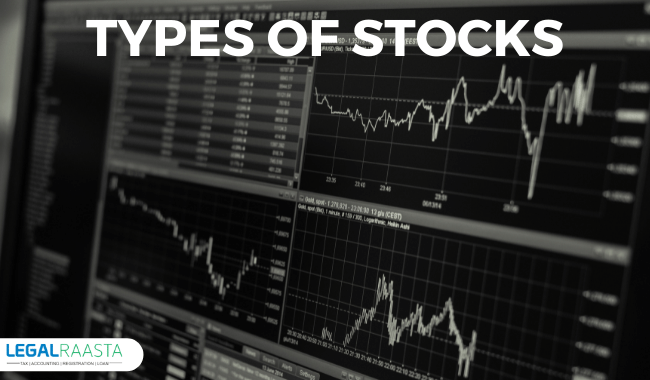Functions of Financial Market
Any marketplace in an economy where the trading of securities takes place, including the trading of shares, bonds, currencies, and derivatives, is referred to as a Financial Market. Financial markets assist in establishing a transparent and controlled framework for businesses to get significant quantities of market cash for operation. Additionally, it enables businesses to balance their risk. Since markets are open to the public, they offer a transparent method of establishing the pricing for everything that is exchanged there. The most significant functions of the financial markets are covered in this article, and if you require any assistance with a financial issue, you may contact one of our specialists who can handle your case quickly and efficiently.
What is Financial markets?
A financial market is a general term that refers to many marketplaces where financial assets are bought and sold. Examples of these marketplaces include bonds, money, derivatives, and stock markets. The financial markets, broadly speaking, comprise a number of smaller marketplaces, including the stock market, bond market, forex market, commodities market, and derivatives market. As with any marketplace, some financial markets may be controlled while others may not, and the prices of the financial assets exchanged in financial markets also fluctuate based on a variety of reasons. These price changes offer opportunities for interested traders and investors to profit from their investments.
Regardless of their size of business or other criteria, it provides a framework where different parties, such investors and debtors, are handled equally and effectively. Additionally, the financial sector offers a variety of employment opportunities, which lowers the nation’s unemployment rate. Due to the fact that funds are provided when tangible properties are purchased and sold, the real estate market, like the rest of the financial markets, is a financial market.
Numerous applications for financial markets
- Price discovery: The financial market makes it easier to establish prices for the many financial securities that are traded. The underlying premise is the embodiment of the basic economic notion of demand and supply, which assists in understanding what the market is prepared to pay for a given financial instrument. Regardless of whether they are newly issued or already in existence, it is the platform where the prices of financial assets are fixed.
- Funds mobilization: The return that investors expect, which is determined by participants in the financial market, is another important factor for capital allocation. The needed rate is an important consideration when raising money, thus the businesses seeking funding must be aware of it. As a result, the financial market decides how to distribute the available funds from investors to the businesses or people who need money to meet their operational needs. The financial market assists in transferring money from investor savings to firm capital in this way.
- Liquidity: Without a regulated financial market, investors would be unable to transact and would be compelled to hold on to their financial assets or instruments until a liquidity event. The liquidity event for debt instruments occurs when the issuer is legally required to make payment at maturity. For equity instruments, the liquidity event will occur at the moment of the company’s voluntary or involuntary liquidation. The financial market steps in at this moment by offering investors trading opportunities so they can quickly buy and sell financial products at any time for their fair market value. As a result, the financial market offers investors liquidity, enabling them to freely liquidate their holdings and turn their securities into cash.
- Risk sharing: Those who make the investments differ from those who lend their money as investors. The financial market makes sure that investors are completely aware of the dangers connected with the investment before making one through the risk-sharing function. This is how the financial market aids in shifting investment risk from the person making the investments to the investors who are making them.
- Intermediary: Industries need money to extend their operations, and investors are needed for this. On the other hand, investors need a good return on their investments, which is why they depend on the industries. As a result, for both industries and investors to succeed, the other is necessary. As a result, the financial market serves as an intermediary and offers the ideal platform so that businesses can quickly raise the money they require while investors can discover the investment opportunities they are looking for in order to earn a profit.
- Market efficiency: Before investing their money in the purchase and sale of any financial products, investors look for various sorts of information. This information can only be acquired in the absence of the financial market by investing a sizable sum of time and money. The financial market, however, makes sure that investors can access all of these facts without having to spend a sizable sum of money. It aids in lowering transaction costs in this way.
- Capital formation: With the aid of the financial market, savings that might otherwise go unused are transformed into capital for firms. In other words, it acts as a conduit for investors’ savings to reach firms, which aids in the production of capital.
- Cost determination: By letting market forces work on their own to establish the pricing of a tradable asset, financial markets help evaluate the capital worth of securities.
- Platform: Financial markets provide as a place where prospective buyers and sellers may connect, communicate, agree, and transact. The financial market’s characteristic that makes trading simpler also saves interested parties a great deal of time and money.
- Mobilization of Savings: In another equation, financial markets are components of the world economy that bring money back into circulation by enabling it to be employed for the purchase and sale of securities.
- Time Factor: Being honest, operating in a conventional market where individuals trade requires a lot of time and work. On the other hand, a financial market provides all the data required for trading financial assets. The procedure requires little money, time, or effort to deliver profitable outcomes.
Implication
It’s clear why financial markets are crucial to the global economy given their wide-ranging economic effects. As was already mentioned, when it comes to trading, the financial market does not distinguish between the size of an individual or a corporation entity. Because of this, a financial market plays a crucial role in creating solid business opportunities for everyone as well as expanding the notion of inclusivity in terms of economic integration. The largest legal Services Portal in India, Legalraasta, offers on-demand access to lawyers for any type of financial market assistance about any case or issue. It links those looking for legal counsel with competent lawyers who may assist them in solving their issues swiftly and simply. It aids people in navigating challenging legal issues so they can resume life as quickly as possible.









